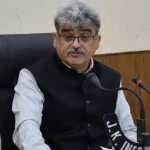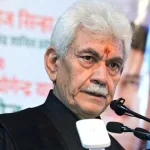Dr. FIRDOUS AHMAD MALIK
Inflation is a term that defines the rise in general price levels of products and services within an economy over a period of time. Inflation affects every individual within an economy, but it has harsh consequences for the poor. Unfortunately, the poor are the individuals most affected by inflation, even though they have little or no control over it. This essay will highlight how inflation is a rich problem paid for by the poor. Inflation is a tricky phenomenon that affects people from all walks of life. However, some groups are more affected than others, and this is often the case for the poor. This is because inflation has a way of enriching the already rich while leaving the poor in a state of perpetual struggle. According to recent figures, the cost of living has risen exponentially over the past decade, while wages have remained stagnant for most low-income earners. This essay delves into the subject of inflation, discussing its causes and how it affects the lives of the poor.
To start with, inflation occurs for various reasons. However, the main cause is an increase in demand for goods and services. As such, a society with an increasing population will undoubtedly experience inflation as more goods will be needed to satisfy the surging demand. Additionally, inflation happens when there is an increase in the money supply, leading to a surge in purchasing power. This causes suppliers to hike their prices as they know more money is chasing fewer goods. The end result is that the price of goods and services rises, and those earning lower wages are quickly priced out of the market.
Firstly, inflation has a clear impact on the poor because they spend a significant portion of their income on basic commodities such as food, housing, and transportation. For instance, when the price of gasoline increases, it directly affects the poor, who cannot reduce their demand for transportation. This, in turn, increases their overall expenses. In contrast, the rich can adjust to these changes by reducing their demand for such commodities since they can afford to look for alternatives or use more efficient modes of transport. Therefore, inflation disproportionately affects the poor by reducing their purchasing power.
Secondly, inflation affects the poor in a more severe way because they do not have the right tools to fight it. The government and central banks across the world use monetary policies to curb inflation. However, these policies impact social inequalities as they principally cater to the rich. For instance, raising interest rates or reducing government spending is a commendable option to tackle inflation but can also be disastrous for the poor. It limits access to credit for the middle- and low-income segments of the population, thus compounding their financial woes. When prices rise due to inflation, low-income earners are the most affected. This is because, unlike their rich counterparts, they do not have a safety cushion to protect them from the rising cost of goods. For instance, a loaf of bread that costs $1.00 today might rise to $2.00 in the wake of inflation. While a $1.00 increment may be minimal for the rich, it can prove disastrous for the economically disadvantaged, who may have to sacrifice other essential needs like healthcare to purchase such an item. Additionally, inflation causes the prices of oil and other commodities used to produce goods to rise, ultimately resulting in a rise in the price of finished products.
Thirdly, inflation has a ripple effect on the poor because they have to bear the brunt of the lack of access to relevant information. The rich utilise the latest technology and analytical tools to detect inflationary pressures early on, thereby minimising their losses. In contrast, the poor work in a market environment that has limited access to relevant information. This disadvantage makes the poor more vulnerable to the consequences of inflation. They face worsening financial conditions when the prices suddenly increase because they have not been able to anticipate and plan for this event.Studies suggest that inflation affects the poor in different ways. For instance, low-income households spend a higher percentage of their income on food, utilities, and transportation, which are all products that rise in the wake of inflation. As a result, inflation has a way of eroding their purchasing power, making it more challenging to make ends meet. According to the consumer price index, which tracks the cost of living, inflation has risen by 5.4% over the past few months, making it increasingly hard for the low-income population to make meaningful progress financially.
Lastly, it is essential to highlight that inflation not only affects the poor’s standard of living but is also detrimental to their health and development. Uncontrolled inflation leads individuals to opt for low-cost alternatives, compromising on the quality of the products and services they consume. This, in turn, can cause health hazards. Poor people are more vulnerable to diseases due to the low quality of the products they consume. Furthermore, inflation also negatively impacts the country’s economic growth, leading to fewer job creation and development opportunities.
In conclusion, inflation is a rich problem paid for by the poor. The problem affects the poor disproportionately and leads to multiple adverse effects, including reduced purchasing power, lack of access to necessary tools, lack of information, adverse health effects, and inadequate economic growth. Therefore, policymakers must devise measures that cater to the poor and minimise the inflationary consequences for them. These measures can include devising policies aimed at reducing inequality and improving access to information for the poor.
Inflation is a phenomenon that affects everyone, but it has a more significant impact on the economically disadvantaged. The rising cost of goods and services, coupled with stagnant wages, has resulted in a state of perpetual struggle for the poor. However, policymakers can help by introducing measures to alleviate their suffering. Steps like offering subsidies on essential goods, raising the minimum wage, or providing direct cash transfers can provide a buffer for vulnerable populations, protecting them from the worst effects of inflation. As it stands, inflation remains a significant problem for most low-income earners worldwide.
(Author is a Research Fellow, National Institute of Public Finance and Policy (NIPFP). Email: [email protected])





